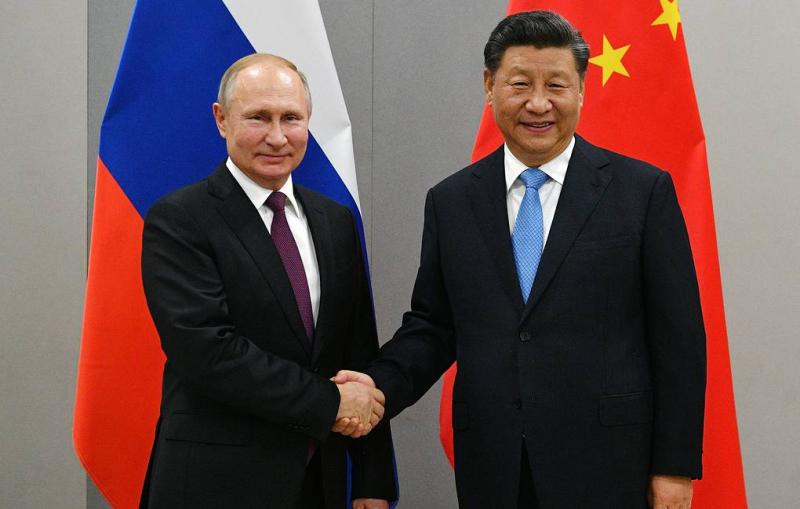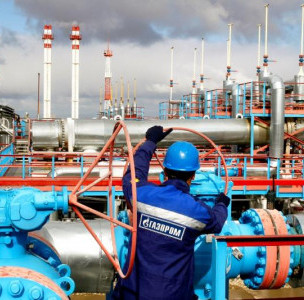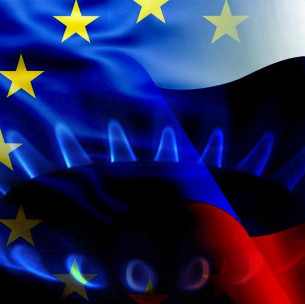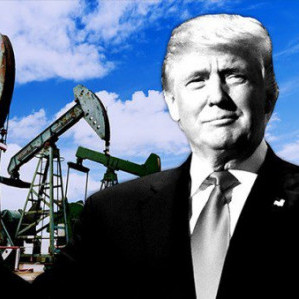
© Ramil Sitdikov/POOL/TASS
In recent years, the following factors have been indicative of Russian-Chinese relations: vigor, a sustainable legal background, a branched organizational pattern and active ties across the spectrum. With regular intensive contacts at the high and highest levels, the expiring year 2022 has been no exception here.
Thus, February 4, 2022 saw Russian President Vladimir Putin pay a working visit to Beijing for talks with his counterpart Xi Jinping. They focused on the bilateral agenda, trade and economic cooperation. President Putin also attended the opening ceremony of the XXIV Winter Olympics at the National Stadium in the capital city. And on September 15, Uzbekistan’s Samarkand hosted an SCO summit featuring Vladimir Putin and Xi Jinping’s bilateral talks to outline the key development parameters for their countries’ relations for years to come.
There are also contacts between the Russian and Chinese policymakers like a visit to Russia by the PRC’s parliamentary delegation. On September 9, Federation Council chairwoman Valentina Matvienko met with Chairman of the Standing Committee of the National People's Congress Li Zhanshu. The distinguished guest also met with Chairman of the State Duma Vyacheslav Volodin and faction leaders. Besides, 2022 witnessed several fruitful conversations between Foreign Ministers Sergey Lavrov and Wang Yi.
In addition, Moscow and Beijing have productively interacted on different multilateral platforms, including the UN, the G20, BRICS and the SCO. At the same time, let’s emphasize that stances taken by Russia and China on fundamental global issues and key international problems are either close or coincide. This is what their cooperation in international affairs is based on.
For instance, Russia's attitude to the Taiwan issue has been long stipulated in the Treaty of Good-Neighborliness and Friendly Cooperation Between the People's Republic of China and the Russian Federation (FCT) of July 16, 2001. There is one single China, with Taiwan being an integral part of it. This remains unchanged, as proved by the current challenges around Taipei. In particular, Kremlin reaffirmed its stance in early August this year amid an aggravation between Beijing and Washington over US House Speaker Nancy Pelosi’s visit to the island. An armed conflict was as near as kiss your hand.
In turn, China has taken a neutral position on the Ukrainian crisis: it does not fully support Russia’s military operation but abstains from openly condemning it, just as it did when voting on a relevant UN resolution. Also, China refused to impose sanctions against Moscow, despite all the pressure coming from the West, primarily the United States.
As Russian Prime Minister Mikhail Mishustin said at the 27th Moscow meeting with his Chinese counterpart in early December this year, the sides are ready to jointly and consistently combat the growing external pressure, because both are interested in each other's prosperity. "Our countries have coinciding approaches to many problems of our time. Together we stand for the formation of a multipolar architecture of international relations. And we are ready to jointly confront emerging challenges and growing external pressure," Mishustin said. He recalled President Putin’s words that "Russia needs a prosperous China, and China, in its turn, needs a successful Russia."
Just a reminder: present-day Sino-Russian relations are officially deemed as those "of comprehensive partnership and strategic cooperation entering a new era." Both Moscow and Beijing value these ties, seeking to develop and strengthen them in every possible way. This is vital now that Russia, amid the Western Russophobic policy and sanctions, has made a U-turn towards the East, namely China. And Beijing reciprocates Moscow, be it noted.
As America’s Wall Street Journal (WSJ) broadsheet noted the other day, Chinese leader Xi Jinping, despite his recent attempts to publicly "distance" China from Russia, is building even closer ties with Moscow behind the scenes. The outlet reports that, according to "Beijing's political advisers," the past few weeks saw the Chinese leader order that his government establish closer trade and economic relations with Russia. "The plan includes increasing Chinese imports of Russian oil, gas and farm goods, more joint energy partnerships in the Arctic and increased Chinese investment in Russian infrastructure, such as railways and ports," the WSJ writes.
And Beijing does walk the talk indeed, as it considers trade and economic cooperation a major component of our bilateral relations. China has been Russia's largest trading partner since 2010, with their governments planning to double the trade turnover from an annual $100 billion to $200 billion by 2024. By the way, the $100 billion mark was reached back in 2018, but in February this year, Xi Jinping outlined a new level of $250 billion a year.
According to China’s General Administration of Customs, trade turnover between Russia and China increased by 29% and amounted to $97.71 billion from January to July 2022. China imported $36.26 billion worth of goods to Russia – 5.2% more as compared to the same period in 2021. Supplies from Russia to China increased by 48.8% to $61.44 billion. And in November, the turnover was reported to reach nearly $153.94 billion, exceeding last years’ figures by 33%. At that, the sides tend to conduct financial transactions in their national currencies, which provides better protection from possible sanctions for both. Further on, Moscow and Beijing intend to keep boosting the share of national currencies in bilateral payments.
Notably, Russian exports relies on energy resources (Russia is a major fuel exporter to the Chinese market), mineral products, wood, pulp and paper products, metals and articles made therefrom, food stuffs and agricultural stock. As for the imports, the bulk of supplies falls upon machinery, equipment and vehicles, chemical industry products, textiles, footwear, metals and articles made therefrom, etc.
China, by the way, ranks among the highest-profile investors in the Russian economy. According to Beijing's own estimates, its direct cumulative investment amounts to some $13 billion, and this figure increased by $450 million in the first 8 months of this year alone, which is 150% more as against the same period last year. And Russia’s Ministry of Economic Development claims the parties plan to invest another $1.3 billion in joint projects. Let’s emphasize here that cooperation between Russia and China is even more successfully developing as regards energy and nuclear power, with plans in these spheres being truly ambitious…









